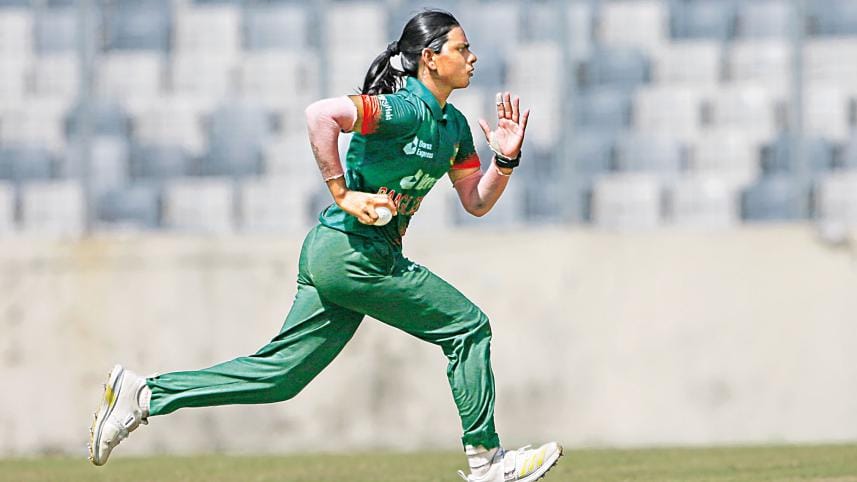Balancing the sporting scales: Still miles to go

The sporting world in the past decade has witnessed a paradigm shift when it comes to the women's circuit. In between came the coronavirus pandemic but the uprising proceeded nonetheless as an ever-increasing turnout during matches and media coverage verifies the notion.
Bangladesh, too, has contributed to the mix. Having produced household names in individual sports, like Zobera Rahman Linu in table tennis and Rani Hamid in chess, the country had longed to see the emergence of successful units in the field of two of its most popular team sports – cricket and football.
However, when the footballers won a historic SAFF Women's Championship in 2022 after the cricketers clinched the Women's Asia Cup in 2018, a profound transformation felt well and truly on the cards. But with success and consequent surge of media attention, the flip side of the coin revealed a not-so-rosy picture, pointing out the glaring cracks of gender disparity that simply cannot be papered over.
In the midst of it all, Nigar Sultana Joty, captain of the national women's cricket team, summed up the scenario, acknowledging that progress has been made albeit with limitations.
"I feel that things have changed. I used to think that people were not that interested in women's sports. But now, there is huge interest in women's football. In other sports as well, the women are making progress.
"I feel that things have changed. I used to think that people were not that interested in women's sports. But now, there is huge interest in women's football. In other sports as well, the women are making progress. I don't know if the men's and women's sports are getting the same importance, but the situation has improved a lot [in Bangladesh]," Joty told The Daily Star earlier this year.
It's worth noting that the Tigresses do not yet have a designated indoor training area at the 'home of cricket' at Mirpur's Sher-e-Bangla National Cricket Stadium, which their male counterparts enjoy. The salary difference, too, remains significant despite the fact that the cricket board (BCB) upped the salary cap for the centrally contracted women cricketers last year. The same applies for the footballers in this context.
During the interview, Joty opened up about the struggles, emphasising that it was not just "wanting bags of money" but about respect.
"In abroad, they give women's sports the same amount of importance as men's sports. In India, the men's and women's teams get almost the same benefits from their board. I don't know if something like this would happen in Bangladesh. We have many limitations, there are also some problems in our mentality. Still, what's the harm in remaining hopeful!
"The Bangladeshi women in sports are achieving great things. But for us, the biggest thing is respect. We don't want bags of money; we want to be respected. We want to feel important. We want to see that we are prioritised. The women hope for the respect that men receive in every sport," she said.
Historically, societal norms and traditional gender roles have been playing gatekeeper in this part of the world, holding back the development of our female athletes from the budding stage. Considering the prevalent infrastructure and coaching facilities, or the lack of it, Bangladesh's sportswomen had long been dancing to a tune that's out of sync; as if pursuing a passion for sports is some sort of a rebellion.
The persistent idea that sports are a men's-only club builds walls for the women. Everyone applauds the men without a second thought as they enjoy the financial perks, endorsements and media coverage, while the women athletes are left juggling the odds.
In the quest of setting up equity in the sporting landscape, the finish line appears far away. Thus, it's time to devise, or recalibrate, a sound strategy that rips apart stereotypes, shouts for inclusivity and puts some real muscle into the infrastructure. Governments, sporting organisations and the media must all take steps to create an environment in which women athletes not just survive but thrive.
At the end of the day, Bangladesh's women in sports deserve more than just a pat on the back; they deserve a roaring crowd, equal opportunities and a space where their victories, big or small, are celebrated.



 For all latest news, follow The Daily Star's Google News channel.
For all latest news, follow The Daily Star's Google News channel.
Comments